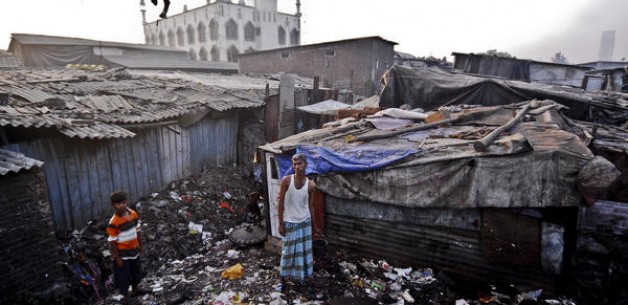An article published this week in The Hindu as well as one published November 7 in The Times of India featured BIC researcher Simpreet Singh and his recent study on the Mumbai Urban Transport Project (MUTP). While the Bank touts achievements of the MUTP project—including reducing congestion on city streets and improving travel time for commuters—the project has also led to thousands of displaced families. Many of the displaced include children that were relocated up to 5 km away from their schools in polluted areas near dumping grounds. Long distances and higher commuting costs have caused many to struggle to keep up with their studies, while others have dropped out of school entirely.
The Bank insists that the children are “better off” in the resettlement sites than in their former slum dwellings, and that resettled people have experienced an “overall improvement” when compared to the “slum living conditions” where resettled people used to live. However, receiving 30 minutes of running water per day in their new homes does not mean that these children have experienced any significant improvements in the areas of their lives where much stronger investment is needed to end the cycle of poverty in their communities.
The Bank argues that its involvement in the project has led to an increase in the number of school buses, and a new standard adopted by the local government under which all new resettlement sites with a population of over 5,000 will receive a school on site. However, these developments are too little and too late for the children who spent years languishing in squalid resettlement sites with little or no education or health facilities. Children who suffer such effects from poverty experience lifelong damage, “turning them into adults who perpetuate the cycle of poverty by transmitting it to their children.”
This article and the study on which it is based is a testament to the importance of safeguards for the rights of children impacted by Bank projects. The World Bank must update their safeguard policies to address the risks to children posed by resettlement. Children who are displaced must not lose access to education and health services.
The full case study on which these articles are based will be published in early 2014.
Articles:
Children worst affected by displacement: study, The Hindu
Raw deal for kids displaced by infrastructure projects: Study, Times of India

